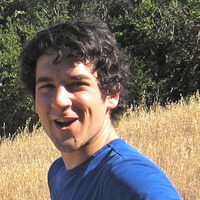Educational, behavioral, and psychological considerations in niche online communities. Hershey, PA: IGI Global, 2014
This chapter describes a study that explored how citizens enact their citizenship within one nich... more This chapter describes a study that explored how citizens enact their citizenship within one niche online community dedicated to teaching about and supporting issues related to global citizenship. The research highlights the limitations of existing conceptualizations of citizenship paradigms and associated educational programming. In the discussion, the authors suggest that the integration and use of the Internet—specifically the use of forum-based social media platforms—as a curriculum supplement may effectively address the challenges and limitations that exist within traditional citizenship education classrooms.





Uploads
Papers by Tieja Thomas
This inquiry used corpus-assisted (critical) discourse analysis to examine 34 online discussions concerning The Charter appearing within one online environment (reddit). It aimed at three interrelated objectives: 1) to trace how citizens’ conceptualizations of citizenship and the social relations that they produce evolved alongside online discussions of Quebec’s proposed Charter of Values, 2) to analyze these conceptualizations in order to determine where these articulations converge and/or diverge from existing discourses of citizenship, and 3) to assess the possibility for Canada to constitute a site of both radical and plural democracy.
Findings from this research reveal that online discussion were framed primarily by discourses of liberal democracy, nationalism, and the current Western security environment, which are deeply in tension with respect to themselves and to one another. Despite these tensions, however, findings reveal that groups who are perceived as occupying majority positions within society often attempt to delegitimize overt counter-discourses that challenge dominant conceptions of Canadian citizenship. Regrettably, this forecloses the possibility of transforming conflicts arising from difference into sites of socio-political flourishing.
This research highlights the need for citizenship educators to engage with pedagogical strategies that open up spaces for contestation and conflict surrounding issues of privilege, belonging, and cultural difference. Moreover, it forwards potential strategies to converge the on- and offline worlds in favour of citizenship for and within radically democratic and plural societies.
This inquiry used corpus-assisted (critical) discourse analysis to examine 34 online discussions concerning The Charter appearing within one online environment (reddit). It aimed at three interrelated objectives: 1) to trace how citizens’ conceptualizations of citizenship and the social relations that they produce evolved alongside online discussions of Quebec’s proposed Charter of Values, 2) to analyze these conceptualizations in order to determine where these articulations converge and/or diverge from existing discourses of citizenship, and 3) to assess the possibility for Canada to constitute a site of both radical and plural democracy.
Findings from this research reveal that online discussion were framed primarily by discourses of liberal democracy, nationalism, and the current Western security environment, which are deeply in tension with respect to themselves and to one another. Despite these tensions, however, findings reveal that groups who are perceived as occupying majority positions within society often attempt to delegitimize overt counter-discourses that challenge dominant conceptions of Canadian citizenship. Regrettably, this forecloses the possibility of transforming conflicts arising from difference into sites of socio-political flourishing.
This research highlights the need for citizenship educators to engage with pedagogical strategies that open up spaces for contestation and conflict surrounding issues of privilege, belonging, and cultural difference. Moreover, it forwards potential strategies to converge the on- and offline worlds in favour of citizenship for and within radically democratic and plural societies.